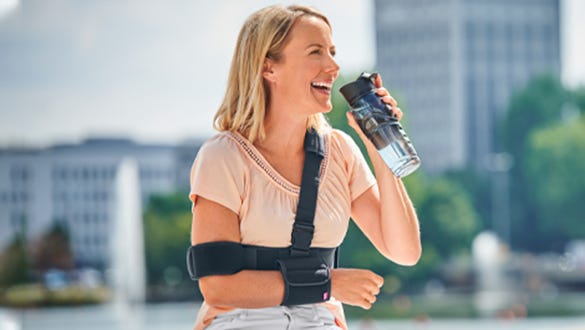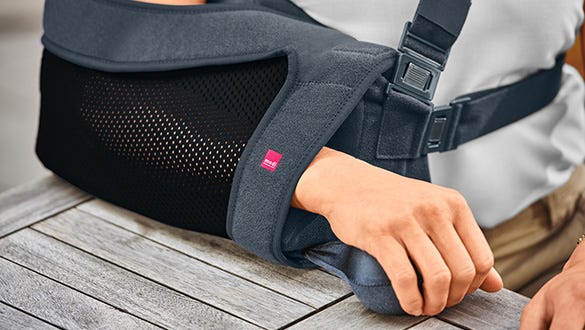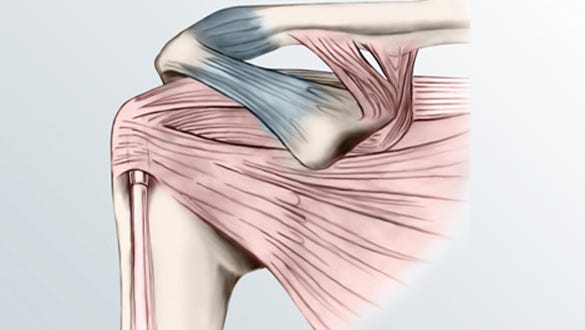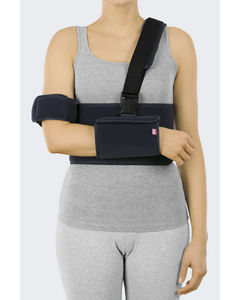- Free First Class Delivery
- Buyer Protection
- Secure Online Shopping
- Healthcare Professional? Click here
Frozen shoulder
Frozen shoulder is a gradual but painful "seizing up" of the shoulder joint


Categories
What is frozen shoulder?
Frozen shoulder happens when the tissue around your shoulder joint becomes inflamed, thickened and stiff, causing pain and loss of movement at the shoulder joint.
It can be linked to diabetes, rheumatic disease, osteoarthritis, injuries or overuse. It can also come on for no apparent reason. It mostly occurs between the age of 40 and 60 and is a self-limiting condition, meaning it usually goes away by itself with time. However, this can take a very long time with symptoms lasting between 1.5-3 years.
Signs and symptoms
Symptoms usually start with pain all around the shoulder and sometimes down the arm. This may be most noticeable at night. You will notice a restriction in your shoulder movement and may have difficulty with everyday activities due to pain and stiffness.
Risk factors and causes
Frozen shoulder usually occurs as a result (secondary form) of injury. Particularly the long-term immobilisation of the shoulder joint after operative procedures or accidents can trigger frozen shoulder. Rheumatic diseases, infections, inflammation or osteoarthritis can also lead to frozen shoulder.
The causes of spontaneous onset frozen shoulder (primary form) are unclear. A number of doctors suspect that metabolic diseases such as diabetes or hyperactivity of the thyroid gland could play a part.
Prevention
In certain cases, it is very important to immobilise the shoulder after an injury or an operation. We have special immobilisation orthoses for this. However, always ask your doctor whether you might be able to start gentle physiotherapy at an early stage.
Early mobilisation helps prevent secondary frozen shoulder. Good posture is another preventive measure. Perform all everyday activities as carefully as possible. Furthermore, you should not expect your shoulder joint to bear any one-sided stresses at work or when playing sports. If you suffer from arthritis, get early treatment.








